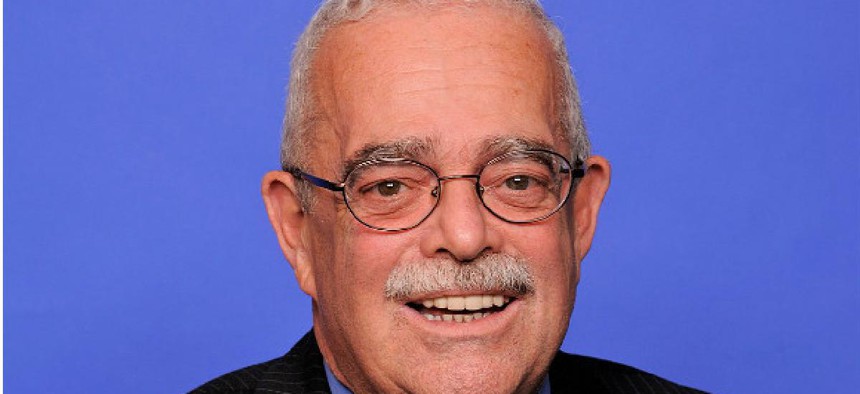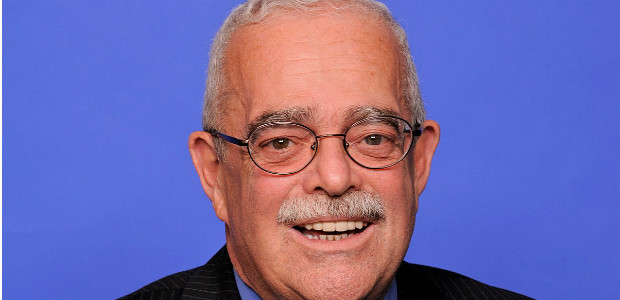Connolly: cybersecurity at stake in election

One of the champions of IT reform in Congress said that the November election could significantly shuffle membership on committees with responsibility for cybersecurity.

Rep. Gerry Connolly (D-Va.) sees IT reform as a bipartisan issue, but cyber could get a renewed focus with a change in party control of Congress
Cybersecurity is not a topic that will be driving many voters to the polls next month, but one congressman says the outcome of the election could change the country's focus on cybersecurity.
Rep. Gerry Connolly (D-Va.), who spoke Oct. 18 at FedScoop event in Washington, D.C., said there is only a small population of members of Congress today who show much expertise or take much interest in cybersecurity, "and that has surprised me, frankly."
"It's kind of a more, I don't want to say obscure, but remote subject for many members of congress," Connolly told FCW. "I think a lot of people with a lot of background in this set of issues aren't necessarily attracted to politics or serving in public office."
Connolly, who sits on the House Committee on Oversight and Government Reform, said that the election could result in substantial changes in committee membership, especially if the Democrats manage to take the House -- which he said seems more possible now.
"If we're in the majority, obviously you have a wholesale change in committee chairs and subcommittee chairs," he said. But when it comes cybersecurity and broader IT policy, he said, "I don't think ... there'd be a radical departure from what we've been doing because this is one area where I don't think there's a lot of partisanship."
Still, Connolly said that a change in party could result in more over all attention to the topic of cybersecurity, and that alone would be progress. He sees that potentially playing out in the Senate Homeland Security and Government Affairs Committee.
"So I think for example going from [Republican Chairman] Ron Johnson [R-Wis.] who has not evinced a lot of interest in this subject area, to Tom Carper, who has, would be a net plus just in the level of interest and therefore committee activity," said Connolly. "[Carper] has been a good partner in helping us finally get [the Federal Information Technology Acquisition Reform Act] passed in the Senate."
"On the House side, on our committee anyhow, I'd become the chairman of the Government [Operations] subcommittee. I don't see a huge shift other than even more attention to these issues," said Connolly.
One possible blow to cybersecurity champions in Congress would be the loss of Will Hurd (R-Tex.) who has been a leading voice on cybersecurity and who faces a tough reelection bid, trying to win a majority Hispanic district in an election headlined by Donald Trump.
"Our politics are different," said Connolly, who is friends with Hurd's opponent, "but when it comes to this set of issues we've been very closely in sync and I have appreciated that partnership."
Looking beyond November, Connolly said that the lame duck session of Congress needs a clear and limited focus. "We want to get our [Modernizing Government Technology] bill passed in the Senate and get to the president's desk. That's a very concrete goal and it's achievable."
The MGT bill passed by the House would authorize agency-based and governmentwide IT modernization funds, and it also would allow government agencies to reinvest savings from IT modernization rather than return the money to the Treasury.
"And then I think we all have to be looking at the transition," said Connolly. "Who's going to be on that transition team? What kinds of decisions are going to be put forward? Who are the personnel we're going to be looking at?"
Connolly said he fears that there will be a loss of momentum on cyber during the transition. In particular, he hopes that Tony Scott will stay on as CIO in the next administration.
Connolly said that he thinks that the recent election hacking by Russia and the Office of Personnel Management hack last year could generate more interest in cybersecurity in Congress going forward.
"I would hope though that there'd be even growing emphasis on how important this subject matter is in undergirding the mission," he said. "It's not somehow tangential to the mission from a management point of view and a lot of times in the past, that's been the approach -- that's something the techies do. Well actually, it's pretty integral to everything you do."


